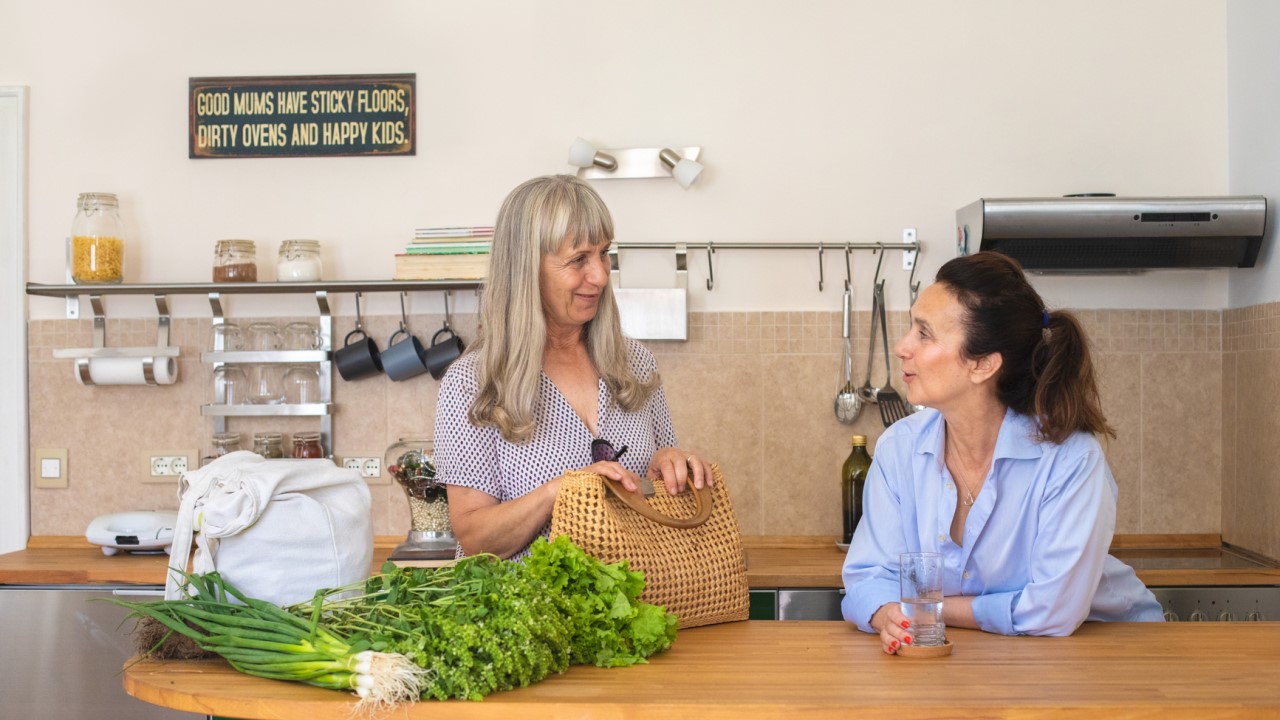“For people who don’t have goals outside of work, or haven’t figured that out, remaining in the workforce can be really important.” – Lauren Ffrost.
You may have been contemplating retirement for a while – and that usually means you’ve had quite a strong focus on getting your finances in order. But, have you also considered whether you’re mentally ready to retire?
Getting this right is important, as it will have a significant impact on your happiness and wellbeing during retirement. So, if you think you’re nearing the end of your time in the workforce and are weighing up your options, there are three key questions that will help you determine whether you're ready to transition to life after work.

Are you prepared to adapt financially?
Australia’s superannuation guarantee works well for some Australians, but not all. According to Associate Professor Joanne Earl from Macquarie University, only around 30 percent of men and 17 percent of women retire with enough superannuation to last them all the way through their retirement years.
“The dominant income source in retirement is still government pensions,” says Joanne. “Many people may be leaving work thinking they have enough money, but most will end up accessing pensions during retirement. It’s not that the superannuation guarantee hasn’t done its job, it’s that people underestimate how much they’ll need in retirement, and how long they’re going to be retired for.”
It pays to think carefully about the timing of your retirement, do the sums and consider your decision as a transition, rather than an event. Make sure you consider your options for any unexpected events, such as redundancy, too.
"Thinking of retirement as an event encourages people to view their planning as a set-and-forget scenario, when it’s not,” continues Joanne. “Plans will need to be continually revised. It’s a process that should actually begin before retirement.”
Are you ready to stop working?
You’ve been planning your retirement and you think you have enough super in the bank. But are you ready to stop working?
Lauren Ffrost, General Manager of The Grace Albert Park Lake, one of Australian Unity’s retirement communities in Melbourne, is a big believer in people staying in the workforce for as long as they can. “People want to stay productive and want a sense of purpose, and working is definitely part of your identity – what makes you who you are,” says Lauren. “For people who don’t have goals outside of work, or haven’t figured that out, remaining in the workforce can be really important.”
Joanne remarks that there are lots of different reasons people psychologically withdraw from work: “It can be to do with the timing of peers or partners retiring, pressure and stress from work, outside interests pulling people towards other options, job satisfaction, a lack of autonomy… They all play a part.”
The decision to leave the workforce is different for everyone, Lauren confirms, “But it’s a time to start questioning the things that are important to you, and what you want to achieve later in life. Are you in a job that you love? Does it give you a sense of purpose? Are there other opportunities outside of work that you want to explore? What will retirement look like for you? How will you stay engaged and connected to your community? It’s a deeply personal decision.”
It follows that you should be clear-minded about your reasons for leaving the workforce, particularly as – if you do need to return to work at some point – it can be much harder to find employment at an older age. Work can have a range of financial, social and health benefits, so if you need just a small improvement or adjustment to your work situation to stay happily employed, you may want to consider continuing to work for a while.
That said, your health should be a critical concern. “There’s no point pushing on to the age at which you want to retire if you’re going to be burnt out and a physical wreck,” says Joanne. ”Ask yourself what you could be doing now to manage the health risk factors to enable you to reach your preferred retirement age and still live the life you want in retirement.”

Is now the right time?
There’s obviously no magic formula to pinpoint your optimum retirement age – but the days of retiring at 50 with a gold watch and a handshake are certainly a thing of the past. Lauren suggests that this is “Partly because people are living longer and are in better health, and people want to stay engaged with meaningful work for longer”.
And indeed, with a generally healthier outlook and better work prospects, the average age at which Australians plan to retire has moved along to 65.5 years. But the actual average age of retirement hasn’t advanced all that far: 55.4 years. Which means that there’s still a lot of non-work time ahead for most retirees. Unfortunately, a lot of people who retire earlier will be forced out of work through ill-health or redundancy.
“I’d encourage people to think less about the right age to retire and more about how they’re going to spend their retirement,” says Joanne. “And before people start to think about getting out [of work], they need to think about what they’re getting into.
“Consider what a typical day will look like – who you will spend time with, where and what you’ll be doing – then factor in the bigger life events like travel, renovations etc. If you’re five years out, you could also be doing some training, setting up connections, thinking about positioning yourself differently. Start planning while you are still at work, across all aspects of your life – financial, health, social, cognitive, emotional and motivational – and think broadly about your needs.”
Clearly, knowing when to retire is about much more than money in the bank. Preparing yourself mentally is all part of the process.
Disclaimer: Information provided in this article is of a general nature. Australian Unity accepts no responsibility for the accuracy of any of the opinions, advice, representations or information contained in this publication. Readers should rely on their own advice and enquiries in making decisions affecting their own health, wellbeing or interest.


